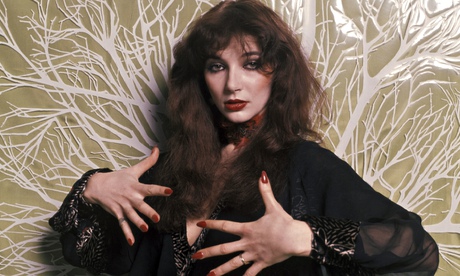
The system was, apparently, nail-bitingly tense and casino-level frustrating: to buy Kate Bush tickets, one had to choose a particular date at a particular price point. While the computer calculated that, no, sucker, there were no further spots available to meet your requirements, the other dates were gone too. All of them. “Why couldn’t you have put in multiple requests? What’s wrong with people? What’s wrong with the internet?” I haven’t had the same conversation so many times since they changed the large domestic bins in Lambeth to the small ones.
Fifteen minutes into the process, 77,000 people had got lucky, and legions hadn’t – currently we know not their number, but we will be able to collect that data by sales of the “No, I have not got any Kate Bush tickets” T-shirt. A sellout that fast, even of 22 dates, doesn’t necessarily tell you very much, except that middle-aged, middle-class people have too much money, or rather, are no longer able to afford middle-class things such as houses so have a surfeit of money for leisure. This, coupled with a nouvelle vogue for never growing the hell up, makes a lot of today’s cultural consumption “post-nostalgic”; you drop 200 quid going to see Take That, not because they evoke the past, but because you get to spend the night being indulged, as children are.
Going to see Kate Bush live isn’t remotely like that. In a world built on fake exits and stage-managed yearning, she left everybody genuinely wanting more. She has been a hermit, as far as performing is concerned, for 35 years; she’s a one-off, a prodigy, a creative heatball, an experiment of the species – dazzlingly successful but unreplicable. Her lyrical romanticism is questing and ambivalent, rather than needy and predictable. Her voice is wild, her melodies only make sense when you submit to them. Her physical world is perhaps the greatest of her idiosyncrasies, abandon and urgency at its poles, creating the magnetism that one would once have called “sexy”, but for the fact that the word now means “identikit gyrating in hotpants”. She is what music sounds like when it is the authentic creation of its author, and there are no strings being pulled by marketing guys or Svengalis.
Taking her as a creative ideal, I realise I’ve been having the wrong conversation about female pop stars. I spend a lot of time wondering about female creativity as it’s represented in music. What does it actually mean when Miley Cyrus leaps around faux-masturbating all the time? Could that ever be called a genuine expression of her sexuality? When Lady Gaga makes a video with R Kelly that looks like a slickly produced advertisement for date-rape drugs, is that collusion with the patriarchy or a subversion of it? Can Beyoncé, through sheer force of will, emancipate herself from the craven re-domestication agenda of her lyric: “If you liked it then you should have put a ring on it”?
The pattern with mainstream music is that a young woman is fashioned into an image of sexual desire concocted by some sleazy 50-year-old guy (or, more likely, a focus group full of them). She is then rounded on by feminists from the left and social conservatives from the right for being naked or (this is worse) naked and too thin.
She says, “What are you talking about? I’m doing what I want. Isn’t that what feminism is supposed to be all about?” And just as you’re about to explain – to Geri Halliwell, or whomever are her successors – that what she’s doing has nothing to do with her own imagination, and she’s just a cipher for someone else’s, it dawns on you how ridiculous it is to tell a woman what you think her self-expression should look like, on the basis that she shouldn’t be letting other people tell her what her self-expression should look like. If you say that Britney Spears was just the unwitting victim of the quasi-pederasty of her early oeuvre, then you’re infantilising her as much as the first guy who dressed her in school uniform and used her virginity as a calling card. Absurd! It’s all so circular and self-defeating.
But then you think about Kate Bush, or Janis Joplin, or Nico, and realise that it doesn’t matter whether or not Miley Cyrus is a feminist or whose fault Taylor Swift is. What matters is what the culture loses, as a whole, when mainstream music is comprised almost entirely of a male version of female creativity, women funnelled through male objectification, women’s self-expression totally subjugated, essentially absent. It loses its Kate Bushes. It loses, at a conservative estimate, half its genius.
Twitter: @zoesqwilliams

